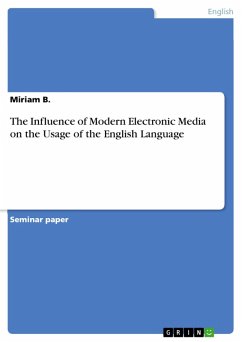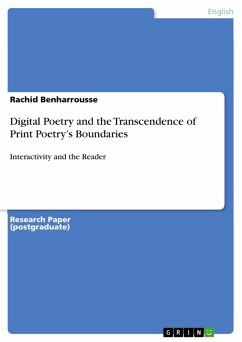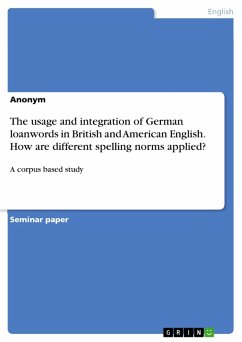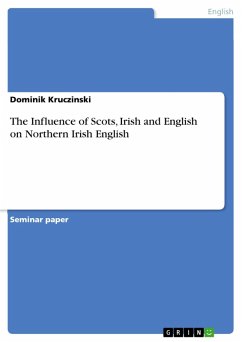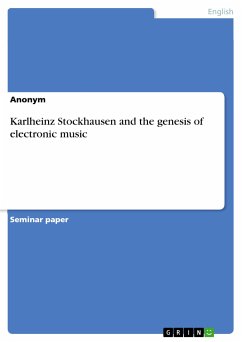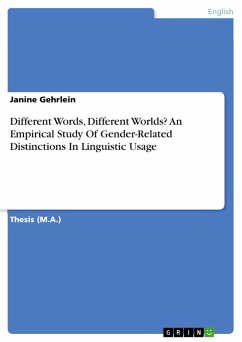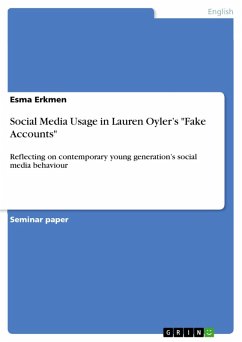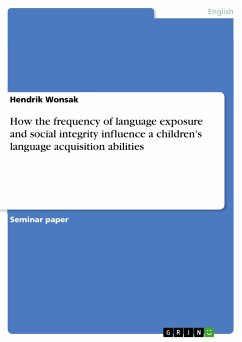Seminar paper from the year 2019 in the subject English Language and Literature Studies - Linguistics, grade: 2,3, University of Potsdam, language: English, abstract: Are modern electronic media, such as blogs, changing our language usage, especially of the English language? And if so, how and to what extent do they do this? This paper will answer these questions. Electronic media, including the devices that were brought along, did become a changing power of society. While dealing with this changing power more closely, it becomes conspicuous that the Internet functions as a significant force. More precisely, it appears as an engine that keeps electronic media development going. Furthermore, the Internet stands for another massive influence concerning any human being on earth that is in favor of being connected to others: Language. To make it more specific there is talk of language change. When the Internet's power is evaluated from a superficial perspective the thoughts that the Internet creates new words, makes prevailing words disappear, uses abbreviations instead and spreads the results on weblogs or other social media sites, comes to mind easily. However, the Internet brought various changes. One of its obvious ones is the way people talk to each other due to modern technology; looking on a phone screen has replaced looking into other people's eyes. Besides, the society is not forced to leave their safe homes anymore because anything that might be needed is available on the Internet, ready to be clicked on. It seems like this medium has made life easier but what is also mandatory to take into consideration are all the negative side effects that electronic media brought along: The loss of punctuation and spelling skills due to texting and the need of including as much information as possible in as little text as possible or the standardization of using abbreviations.
Dieser Download kann aus rechtlichen Gründen nur mit Rechnungsadresse in A, B, BG, CY, CZ, D, DK, EW, E, FIN, F, GR, HR, H, IRL, I, LT, L, LR, M, NL, PL, P, R, S, SLO, SK ausgeliefert werden.

